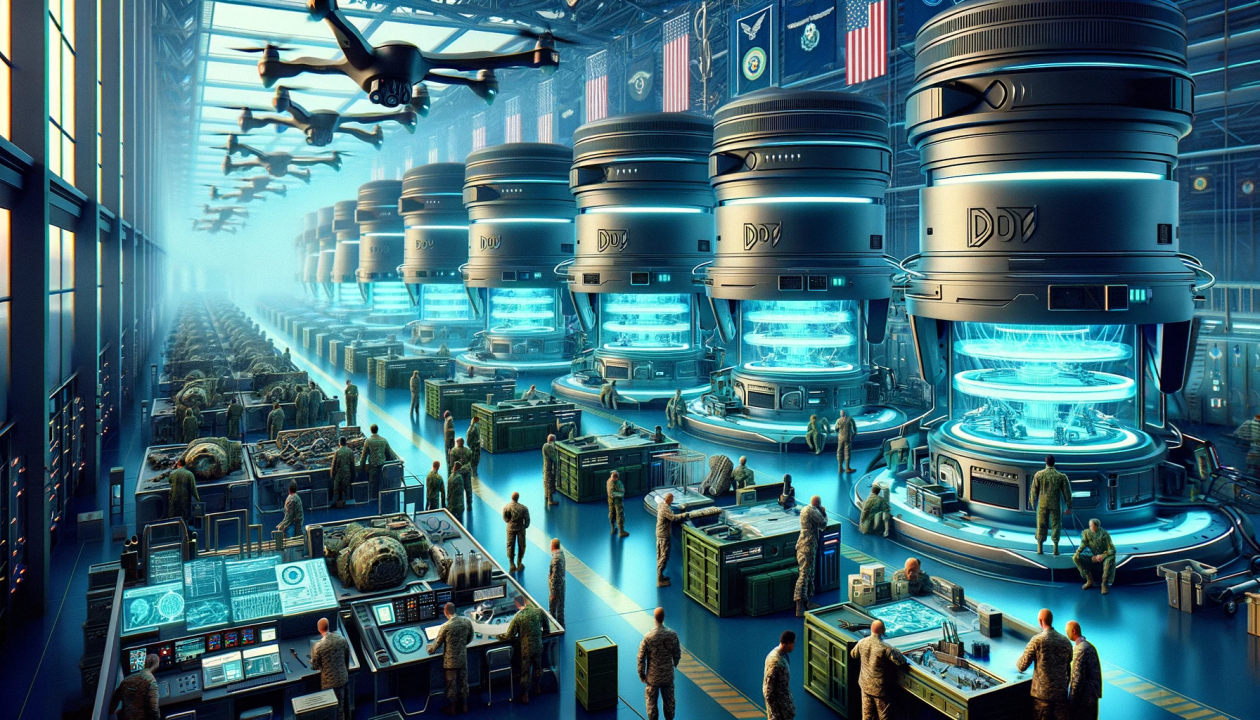The integration of AI in defense R&D is reshaping the landscape of military technological innovations. As nations seek to enhance security and efficiency, the strategic application of AI is becoming increasingly vital. This article delves into the role of AI in transforming defense research and development, exploring its impact on military operations and future implications.

Understanding AI in Defense R&D
Artificial Intelligence (AI) is a frontier technology with transformative potential across industries, especially in defense. R&D in this sector is critical as it develops advanced technologies for national security. The infusion of AI in defense R&D optimizes operations, enhances decision-making, and improves tactical responses, fundamentally altering military strategy dynamics.
The Current State of Military AI
AIs applications in military contexts span a wide rangefrom autonomous drones to intelligent battle planning tools. Countries are investing heavily in AI technologies to bolster their defense capabilities. For instance, the U.S. Department of Defense AI initiatives reflect the strategic importance and investment scale in AI technology development.
Key Technologies in AI Defense R&D
Several technologies are at the forefront of AI integration in defense R&D. These include machine learning for predictive analytics, computer vision for surveillance, and AI-driven cybersecurity measures to protect against cyber threats. Each plays a pivotal role in modernizing military operations [read more about AI Model Training].
Autonomous Systems and Robotics
The emergence of autonomous systems represents a significant advancement in defense. Robotics powered by AI can execute missions with minimal human intervention, thereby reducing risk. These systems are not only efficient but are also capable of conducting complex operations under diverse conditions.
AI for Cybersecurity
As cyber warfare becomes more prevalent, maintaining robust cybersecurity is paramount. AI facilitates adaptive cybersecurity measures, enabling defense systems to detect and mitigate threats in real time. To gain a deeper understanding, explore how AI ensures safety in autonomous systems.
Challenges and Ethical Considerations
Despite its advantages, the deployment of AI in defense R&D raises ethical concerns and challenges, such as biased algorithms and the potential for unintended consequences. Addressing these challenges requires rigorous ethical standards and continuous monitoring of AI systems. Learn about best practices in AI Bias Detection.
Balancing Innovation and Regulation
While innovation is crucial, regulating the use of AI in defense is equally important to ensure safety and compliance with international laws. Transparency and accountable AI practices can foster trust and collaboration among global defense entities.
The Future of AI in Defense
Looking ahead, AIs role in defense R&D will likely expand significantly. From enhancing battlefield tactics to supporting logistics and supply chains, AI-driven solutions promise to redefine military efficiency and effectiveness.
Integrating AI with Quantum Computing
The intersection of AI and quantum computing holds immense potential for defense applications, providing computational power that can solve complex problems faster than ever before. Check out advancements in Military AI Applications for further insights.
Collaboration on a Global Scale
International collaboration is vital as countries share knowledge and strategies regarding AI R&D in defense. Cooperative efforts can lead to the development of standards and protocols ensuring the ethical application of AI technologies in global military operations.

Frequently Asked Questions
What is the role of AI in defense research and development?
AI is pivotal in defense R&D by enhancing decision-making, optimizing operations, and advancing technological capabilities in military strategies.
How does AI impact military operations?
AI impacts military operations by enabling autonomous systems, improving cybersecurity, and providing real-time data analytics for strategic advantages.
What are the ethical concerns associated with AI in defense?
Ethical concerns include potential bias in AI systems, accountability issues, and the need for regulations to manage the impact of AI on global defense strategies.

